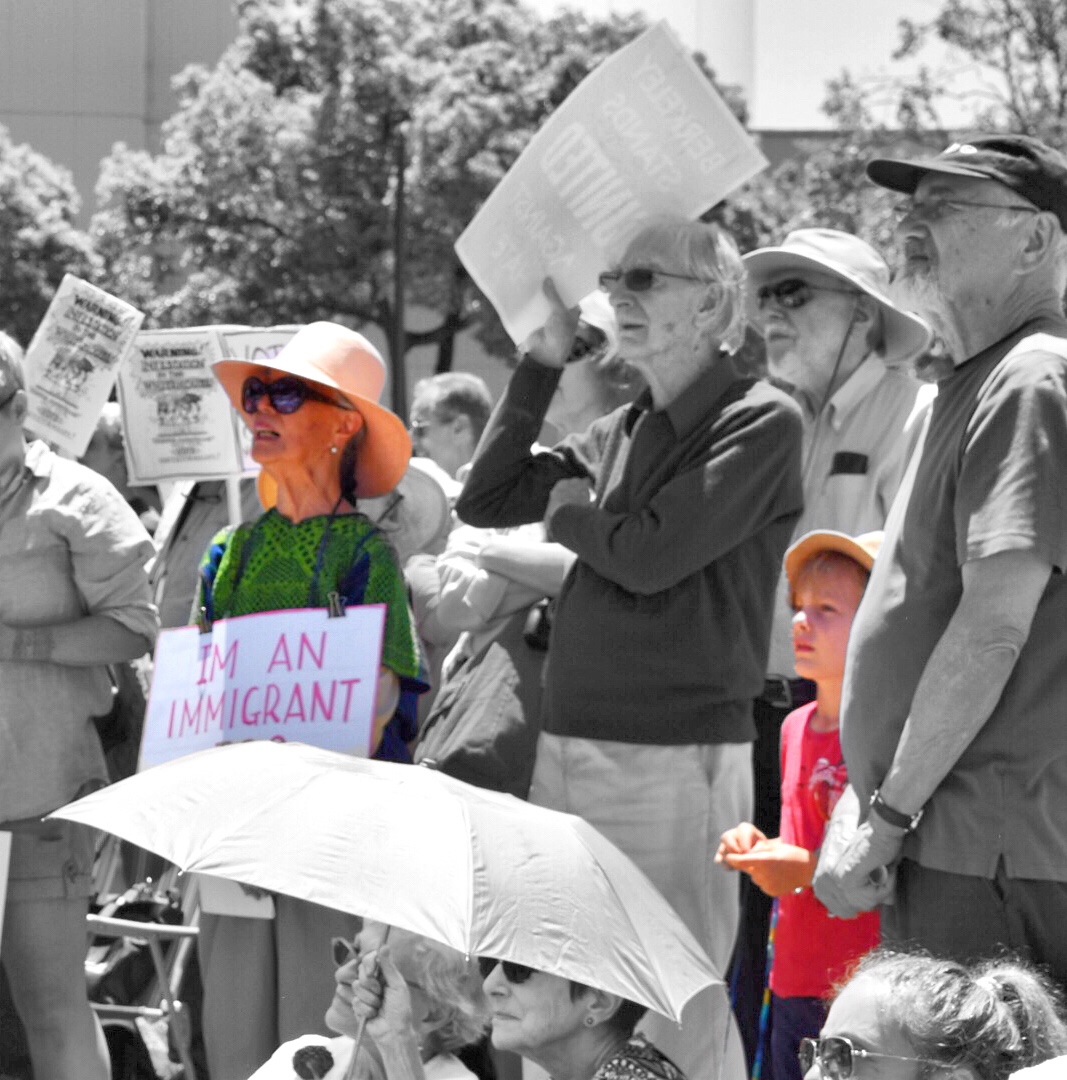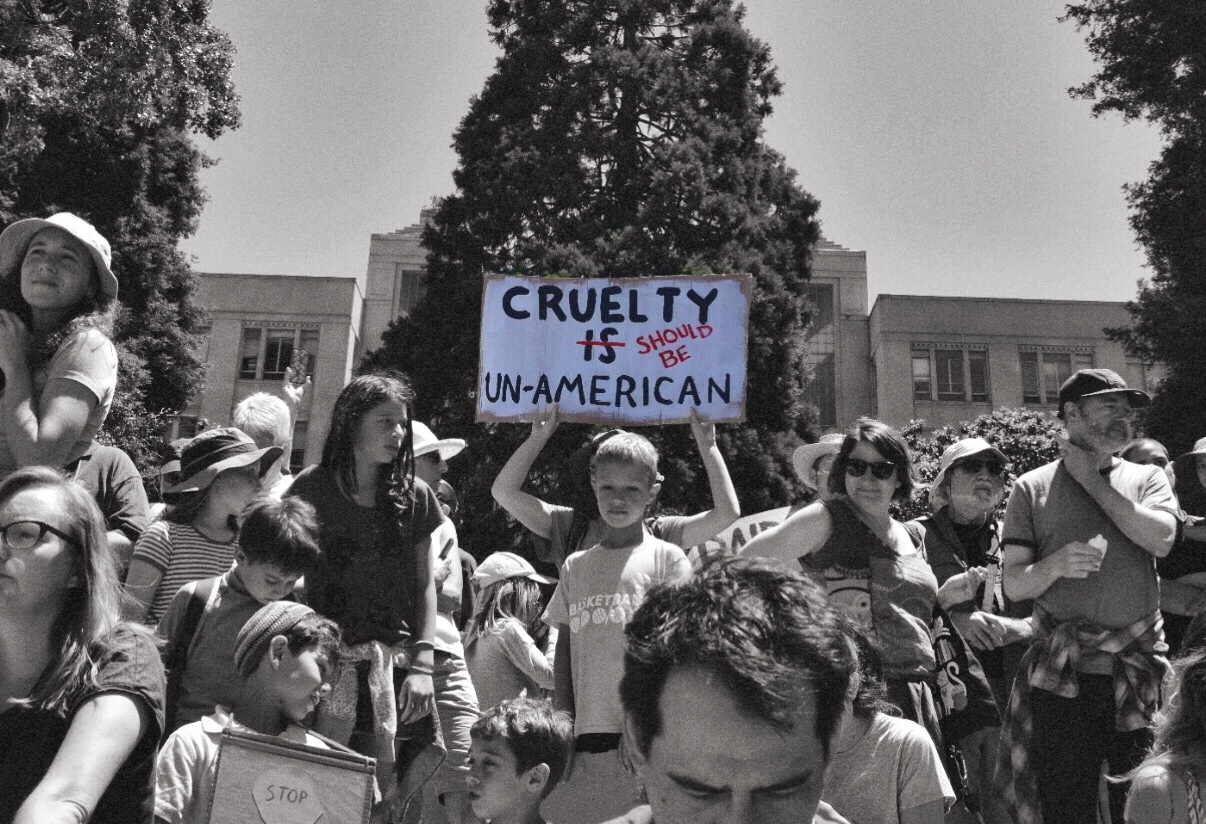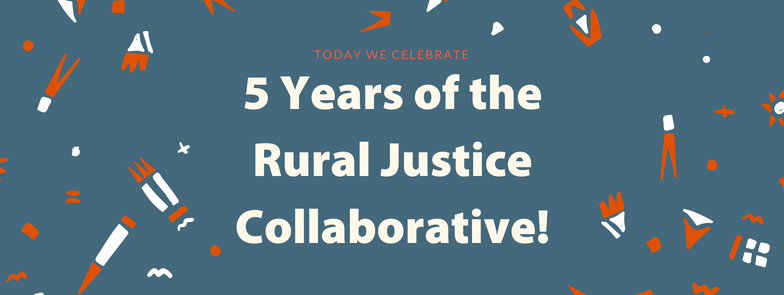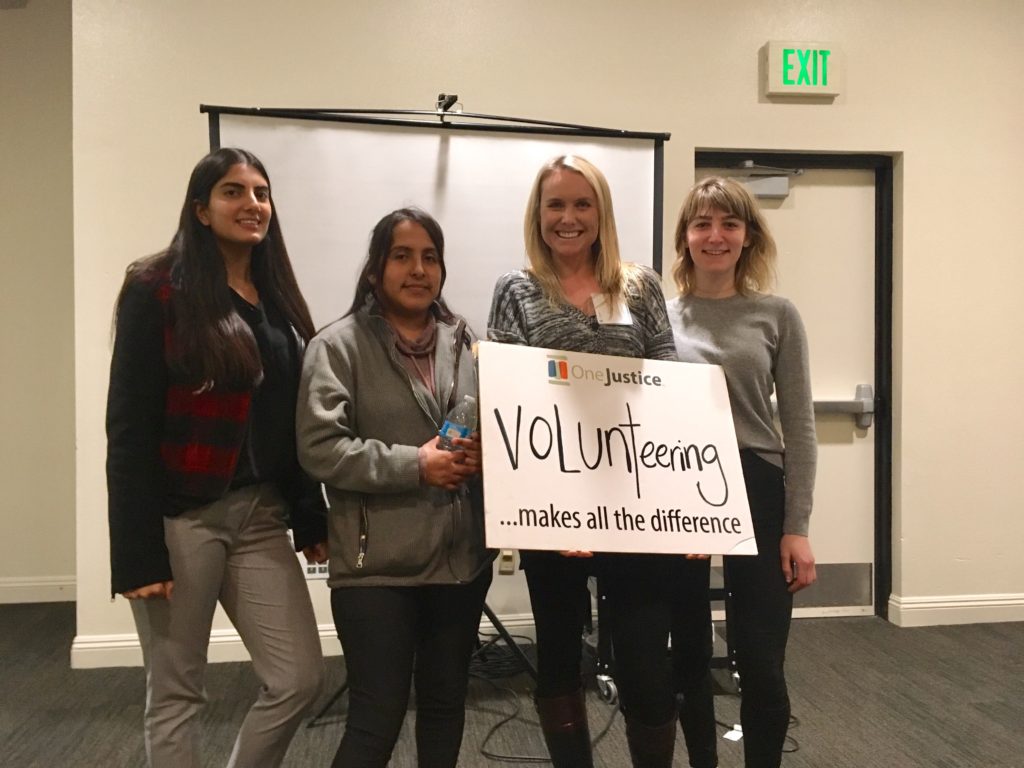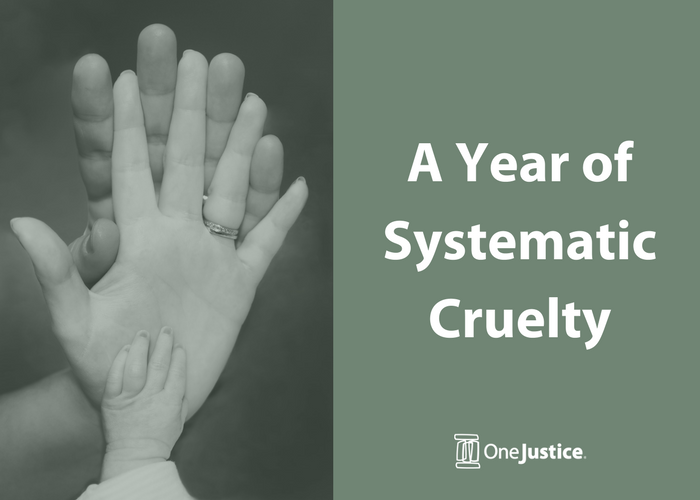The Advocate Voice
Staff from Pangea Legal Services Speak Out at Bay Area Rallies
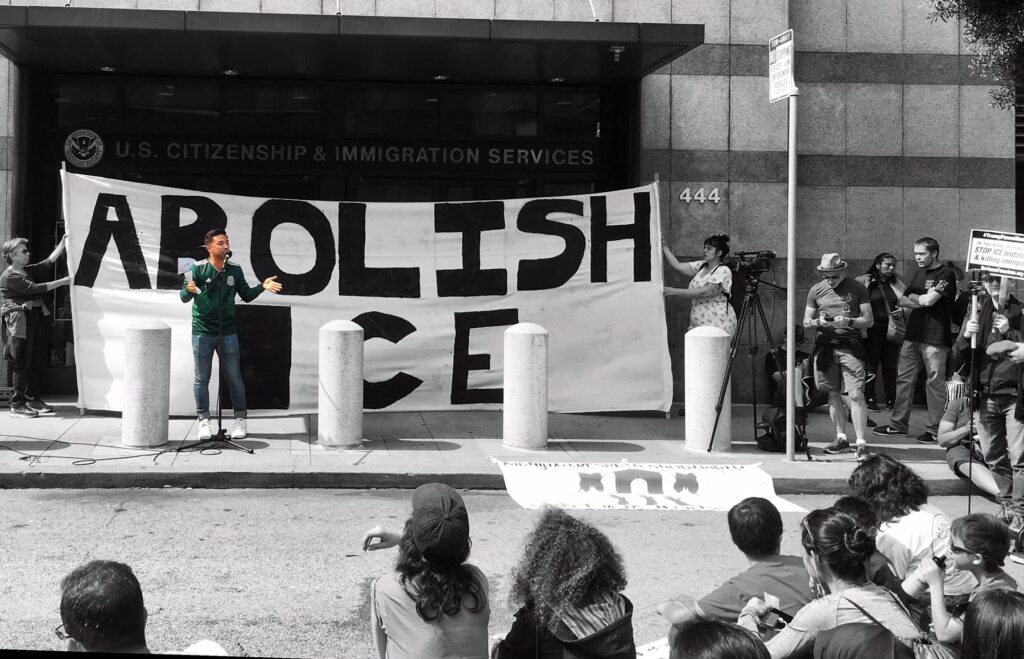
Edwin Carmona-Cruz speaks outside ICE Headquarters at a protest in San Francisco
July 18, 2018
In early July, in response to family separation and the administration’s "zero tolerance" policy, Bay Area communities joined in the nationwide movement to speak out. Many legal professionals joined in the rallies and protests, and some were invited to be speakers. We interviewed two such speakers from Pangea Legal Services to hear their perspective on the movement to stem attacks on immigrants and refugees.
Juan Camilo Mendez Guzman - Immigration Attorney and Director of General Litigation at Pangea Legal Services
What was your initial reaction after speaking at the Families Belong Together Rally in Berkeley?
There was a great turn-out. The organizers did a great job and there were a lot of people, a lot of allies. It’s was pretty encouraging to see. Let’s hope we can turn that into action.
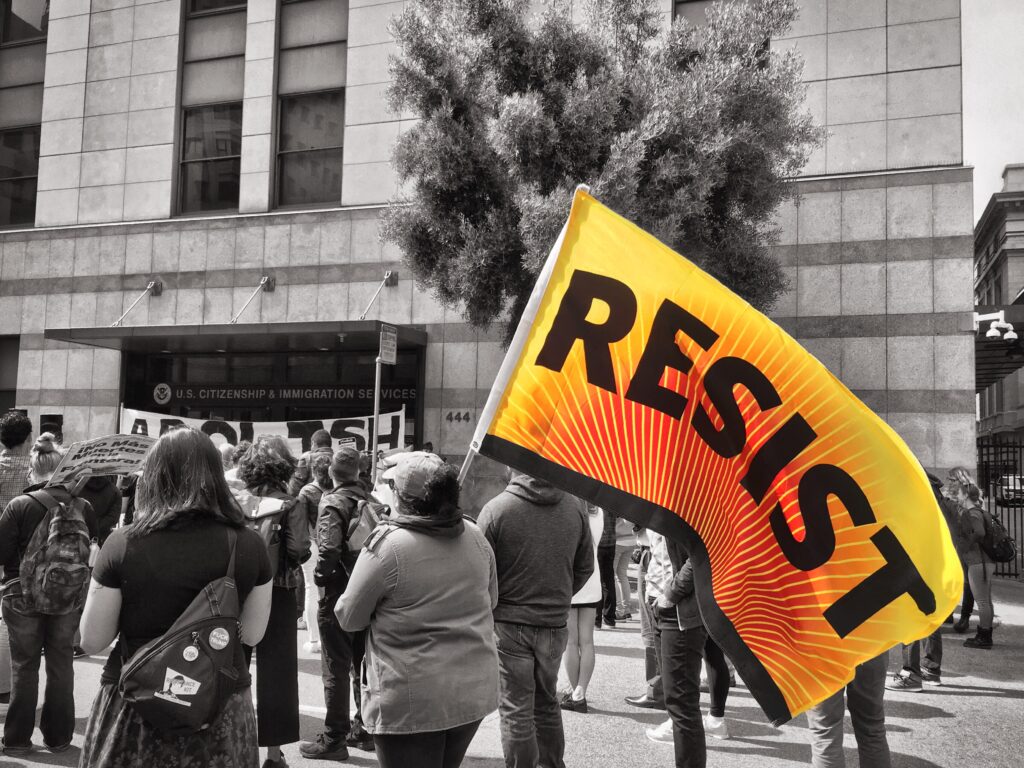 What motivated you as a speaker? What inspired your speech?
What motivated you as a speaker? What inspired your speech?
Our clients. During the speech, I talked about two current clients of ours still in detention. I talked about Sonia, who won her case, but is still being detained because the government appealed. I talked about David, who was issued a $20,000 bond for his freedom even though he is not a flight risk or a danger. We recently negotiated his bond down dramatically so that his family will be able to pay. Our clients are what motivates all of us here. They are the ones who are really suffering.
As an attorney, how do you see the role of other attorneys and legal professionals at such a tumultuous time in light of this administration and its policies and attitude towards immigrants?
In this climate, attorneys need to be willing to step outside their comfort zone because this administration is changing or breaking the rules all the time. We have to think of creative ways to fight back. And that involves strategies beyond what we've traditionally done. It requires working with the community and taking different approaches — new, original approaches.
Edwin Carmona-Cruz - Paralegal at Pangea Legal Services (and OneJustice Executive Fellow Alumnus)
What was your initial reaction after speaking at the Families Belong Together - Block ICE protest in San Francisco?
There is so much enthusiasm and support to Abolish ICE but the fight does not end at Abolishing ICE. We must work to release and reunite all of the families impacted by this deportation machine and continue to advocate for a pathway towards citizenship for all 11 million undocumented immigrants in this country, with no criminal carve outs. We must sustain this movement and put our "Like and Shares" into concrete actions. All in all, it has been very moving seeing newly engaged folks out on the streets supporting these direct actions.
What motivated you as a speaker during the families belong together rally? What inspired your speech?
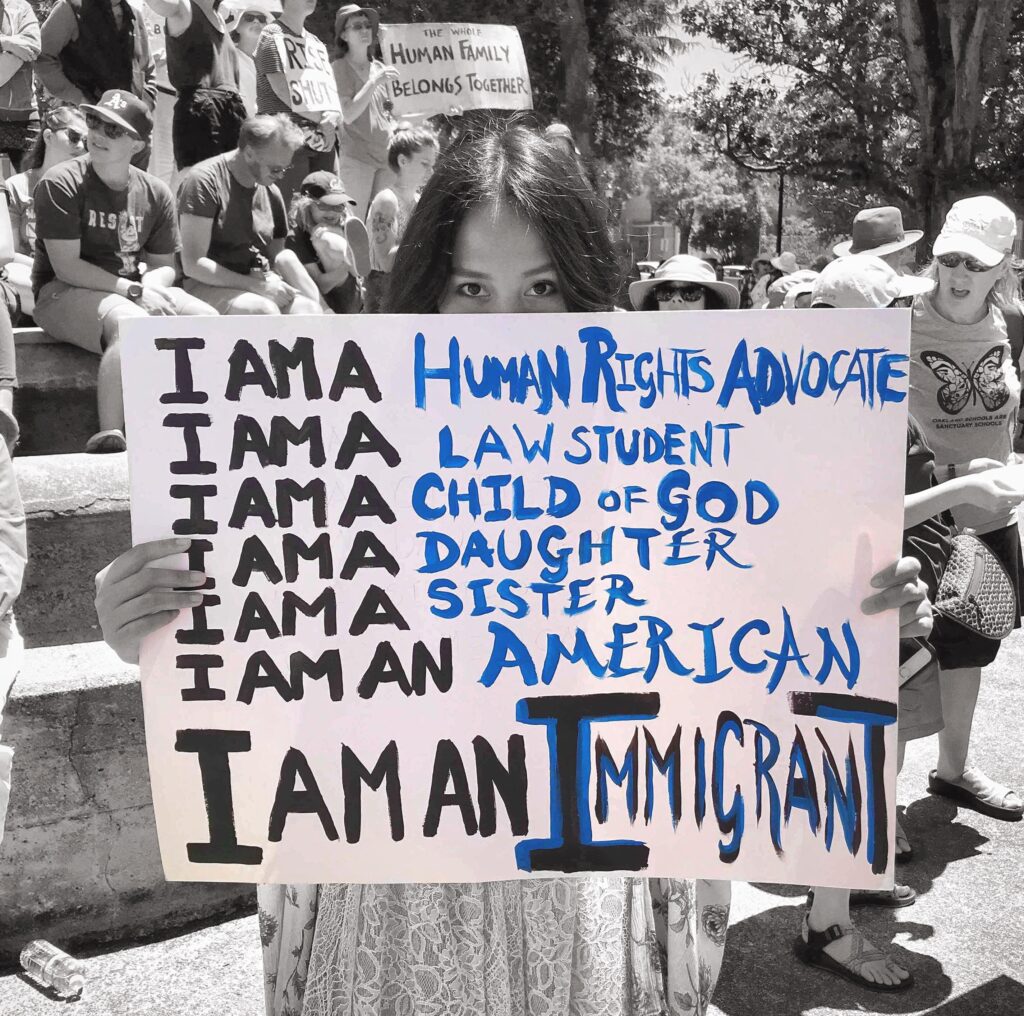
I am a child of immigrant parents from México. It is our social responsibility to advocate for our communities and support the Right to Move for all. My inspiration comes from the resilience, strength and love our communities have despite all of the forces against their existence in this country. Our families need us to act now!
With your role in legal services, how do you see the role of legal professionals at such a tumultuous time in light of this administration and its policies and attitude towards immigrants?
I strongly believe that those in the legal field must use their privilege and access to higher education to stand up and fight back against this administration and their xenophobic policies. Legal service providers, including myself, must support impacted communities so we can achieve real solutions that come from grassroots organizing. The fight for justice does not end in 2020, we must maintain the energy and revolutionary thinking through and through. ¡Sí se puede!
Interested in providing legal help for immigrants and refugees? Sign up for the Immigration Pro Bono Network!
Check out more images from the rallies:
